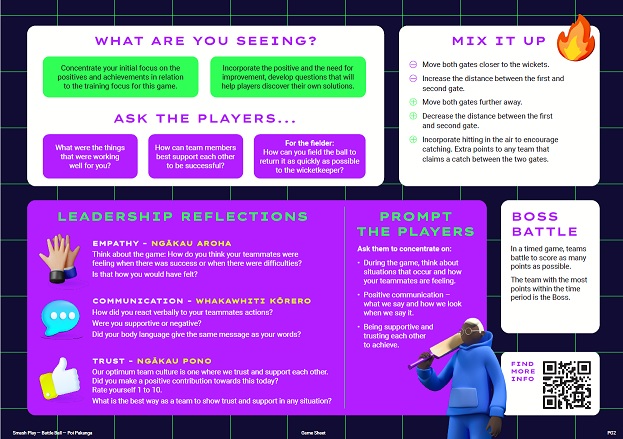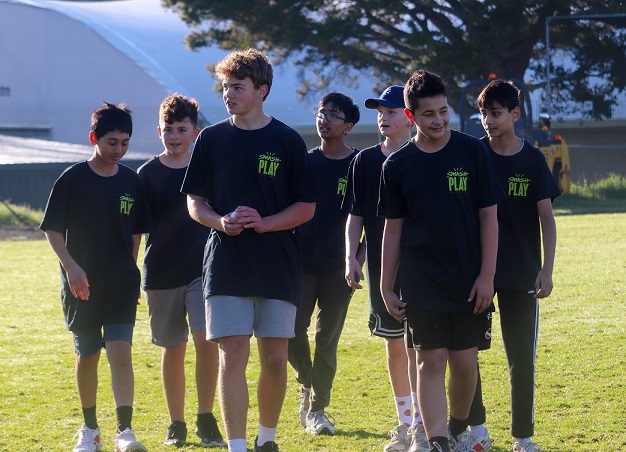Leadership Development

Associate Professor Barrie Gordon
He pukenga akonga koiri
Health and Physical Education Faculty
Te Herenga Waka
Victoria University of Wellington
New Zealand
Download PDF of ' Leadership Development'
Through the development of Smash Play youth- rangatahi New Zealand Cricket (NZC) has engaged a modern approach with an integral focus on the development of leadership knowledge and skills.
Sport has always been considered as an ideal context for leadership development. Whilst the reality is that there is considerable potential for this to occur within sports, whether it actually occurs or not is largely dependent on the players experiences in the games and practices. The role of the coach here is pivotal. The way they relate to their Players and their commitment to facilitating leadership development is the crucial factor.
NZC understands the importance of the coach and has developed Smash Play youth-rangatahi resources in a way that encourages and supports coaches to successfully develop leadership. NZC understands success requires a full commitment to the goal and a careful plan of how to achieve it. As a result, they have introduced a philosophy, programme, resources and coaching structure, with carefully developed games that will achieve this outcome.
Smash Play youth-rangatahi has a focus on enhancing Self-Leadership. Integrating outcomes from youth focus groups, three key values, Empathy-Ngākau aroha, Trust-Ngākau pono, and Communication-Whakawhiti kōrero, were identified as being the most important aspects of being a good leader.

It is these aspects that NZC emphasise through the training games and supporting resources, which are designed to bring a values-based approach to developing leadership to life. These have been carefully designed to help coaches develop a sense of collective leadership with the team and support skills and knowledge in the individual players. Each game has a section titled ‘Leadership Reflections’ which has a series of questions related to the game presented under the three key areas.
These questions will give you, the coach, support as you start working with leadership development. You may well find that you quickly identify other questions which are more suitable for your situation and that is fine.
This process has already been introduced in Smash Play junior-tamariki, and the three identified leadership aspects are closely aligned with the junior- tamariki values of Cooperation-mahi tahi, Honesty- pono and Support-tautoko.

The design of the Smash Play youth-rangatahi values and leadership approach has been based on the following well-established principles from sport development research:
- Prompt Players to think about the concepts of empathy, trust and communication before the game starts - Players need to know what the words mean. Ask them how they think these might look in the game.
- Play the game - the aspects you are developing are a focus of, and present in, the games.
- At the conclusion of the game select questions from the leadership reflections to discuss how players demonstrated leadership during the games - Players need to have the opportunity to talk and think about the values and leadership in relation to how they acted in the games. The importance of giving Players time to reflect on their behaviours can’t be underestimated.
- Players need to know that what they are learning is also important outside of the games, in their lives at school and at home.
NZC should be commended for their vision and for the positive impact the Smash Play youth-rangatahi approach can have on participants, their whānau and the wider community. I would also like to thank NZC for the opportunity to contribute to the development of Smash Play, across both junior and youth spaces. It has been professionally rewarding and extremely enjoyable.












